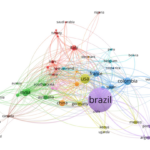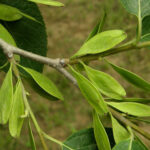Por Magali Ferrari Grando, Professor da Faculdade de Agronomia e Medicina Veterinária e do Programa de Pós-Graduação em Agronomia da Universidade de Passo Fundo, Passo Fundo, Rio Grande do Sul, Brazil
The article “Genetic transformation of the Brazilian BR 451 maize variety by the Agrobacterium tumefaciens method” is published in the journal Ciência Rural, Vol. 47, No. 11, 2017, and contains a detailed description of this process of plant genetic improvement.
The researchers involved in the study aimed to establish a genetic transformation protocol for the BR 451 maize variety developed by Brazilian agricultural enterprise Empraba Maize and Sorghum via Agrobacterium tumefaciens. They were interested in studying the regeneration capacity of plants in vitro and, for this, they developed experiments with embryogenic callus cultivated in three regeneration media containing different growth regulators. In these experiments, the researchers applied three treatments of infection with the agrobacteria in the BR 451 varieties and in a hybrid species, which served as control of the experiment: infection at 25ºC, infection at 40ºC and pre-treatment at 40ºC for five seconds followed by infection at 25ºC. They evaluated the expression of the uidA gene and the formation of callus resistant to the herbicide Bialaphos. The researchers used as reference the researches of Frame, et al. (2010), Ishida, et al. (2009) and Ombori, et al. (2013) on maize genetic transformation.
According to the results, infection of embryos at 40ºC increased the genetic transformation in Hi-II but not in BR 451. Furthermore, the addition of growth regulators in the regeneration medium did not increase the number of regenerated plants.
The researcher Magali Grando says the results of the research provide subsidies for progress in plant genetic improvement in corn. “Our goal is to use this technology to produce transgenic insect-resistant maize by introducing alternative genes to the bt gene, which is most popularly used for this purpose,” adds the researcher.
Genetic engineering techniques specific to maize are still poorly developed by Brazilian research groups and institutions. As groups that develop similar work, Magali cites Embrapa Maize and Sorghum, from Sete Lagoas, Minas Gerais state, and the University of Campinas, in Campinas, São Paulo state. This research differs from other studies when testing breeding on a variety of maize that had not yet been genetically transformed.
References
FRAME, B. R., et al. Improved Agrobacterium-mediated transformation of three maize inbred lines using MS salts. Plant Cell Reports, Genetic Transformation and Hybridization [online]. 2006, vol. 25, no. 10, pp. 1024-1034, ISSN: 0721-7714 [viewed 20 November 2017]. DOI: 10.1007/s00299-006-0145-2. Available from: https://www.ncbi.nlm.nih.gov/pubmed/16710703
ISHIDA, Y., et al. Agrobacterium mediated transformation of maize. Nature Protocols [online]. 2007, vol. 2, no. 7, pp. 1614-1621, ISSN: 1750-2799 [viewed 20 November 2017]. DOI: 10.1038/nprot.2007.24. Available from: https://www.nature.com/articles/nprot.2007.241
OMBORI, O., et al. Agrobacterium mediated genetic transformation of selected tropical inbred and hybrid maize (Zea mays L.) lines. Plant Cell Tissue Organ Culture [online]. 2013, vol. 113, pp. 11-23, ISSN: 1573-5044 DOI: 10.1007/s11240-012-0247-1. [viewed 20 November 2017]. Available from: http://link.springer.com/article/10.1007%2Fs11240-012-0247-1#/page-1
To read the article, access it:
SILVA, M. R., et al. Genetic transformation of the Brazilian BR 451 maize variety by the Agrobacterium tumefaciens method. Cienc. Rural [online]. 2017, vol. 47, no. 11, e20141247, ISSN: 1678-4596 [viewed 20 November 2017]. DOI: 10.1590/0103-8478cr20141247. Available from: http://ref.scielo.org/q4fpk7
External link
Ciência Rural – CR: <http://www.scielo.br/cr>
Como citar este post [ISO 690/2010]:

















Recent Comments